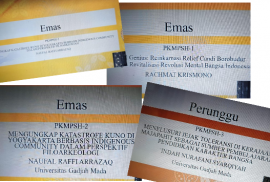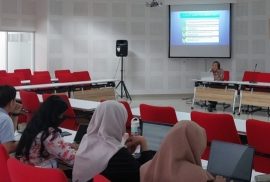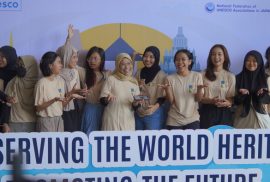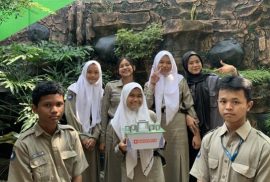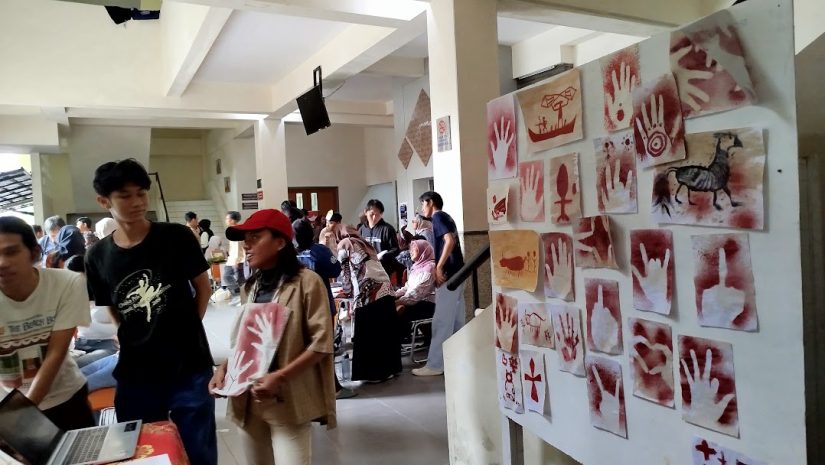
To encourage entrepreneurship among students, the Archaeology Study Program at Gadjah Mada University (UGM) has developed a course called “Archeopreneurship.” This course is compulsory for Archaeology students and aims to equip them with the skills they need to be independent and develop the archaeological potential in their environment. The program is designed to align with the Sustainable Development Goals (SDGs), particularly focusing on poverty eradication, education for sustainability, capacity building, and promoting entrepreneurship.
The Archaeopreneurship class is led by Sektiadi and Aditya Revianur, culminating in a bazaar held on December 12, 2024, at Margono Hall. The event served as a practical application of the concepts learned throughout the course, allowing students to showcase their creativity and entrepreneurial spirit. Eleven student groups participated, each competing to create innovative concepts, develop products, and present them to the public.
The bazaar featured a variety of products and services, all created by students as part of this course. From handmade crafts reflecting local archaeological heritage to educational workshops aimed at raising awareness about archaeology, the event highlighted the potential of archaeology as a tool for community development and poverty alleviation. By engaging in such entrepreneurial activities, students not only enhance their learning experience but also contribute to the local economy.
One of the primary objectives of the Archaeopreneurship course is to instill a sense of responsibility among students toward their cultural heritage. By encouraging them to think critically about how to sustainably utilize archaeological resources, the program aligns with the SDG goal of education for sustainability. Students are taught to recognize the value of their heritage and how it can be transformed into profitable business opportunities for themselves and their communities.
Instructors emphasize the importance of capacity building in this course. They provide students with the tools and knowledge necessary to develop entrepreneurship in the field of archaeology. This includes understanding market demand, developing business plans, and effectively marketing their products. The skills gained from this course are invaluable, as they prepare students for future careers in archaeology and related fields.
Furthermore, the bazaar serves as a platform for students to interact with the public, encouraging dialogue about the importance of archaeology in contemporary society. Visitors are encouraged to interact with students, ask questions, and learn more about the products on display. This interaction not only promotes awareness of archaeological practices but also helps build a community that supports the discipline.
The success of the bazaar reflects the potential impact of the Arkeopreneurship course on students’ lives and their communities. By empowering students to take initiative and develop their entrepreneurial skills, the program contributes to the broader goal of ending poverty through education and sustainable practices. This highlights the role of academic institutions in shaping future leaders ready to address pressing social issues.
In conclusion, the Arkeopreneurship course at UGM is an example of an educational approach that integrates sustainability, capacity building, and entrepreneurship. By preparing students for public archaeology practices, this program not only enriches their academic experience but also contributes to sustainable development. This initiative is evidence of the university’s commitment to nurturing a new generation of archaeologists who are not only knowledgeable but also socially responsible.
Author: Sektiadi assisted by SearchUGM/ai
Photo: Sektiadi

